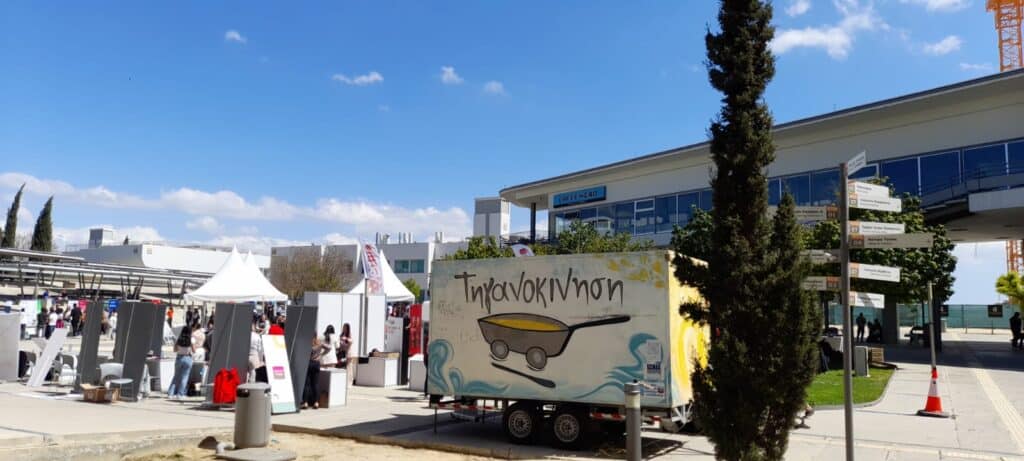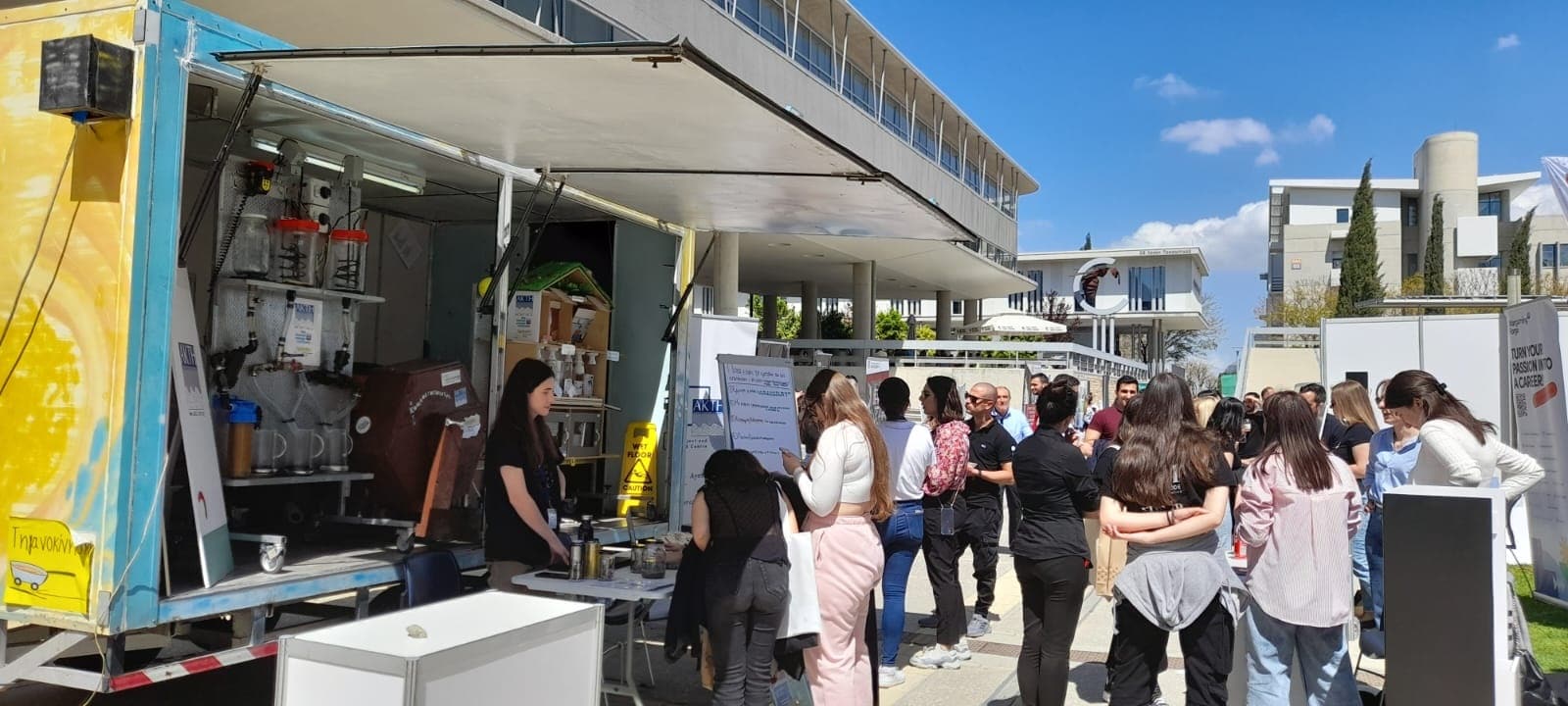By Maria Eirini Liodi
It is our small daily actions, that can dictate the overarching greater impact we have on our environment, be it good or bad. This concept was further explored through the questionnaire conducted as a part of our Tiganokinisi Program at AKTI, Project and Research Centre.
Tiganokinisi is AKTI’s lead educational, environmental project regarding the recycling of used domestic cooking oil – a toxic waste product that is harmful to the environment wherever we dispose of it. Via its recycling process, we can produce two products of immense value, biodiesel, and glycerine. Biodiesel is used in petrol, minimising carbon emissions, whilst glycerine is the base in the production of soaps, medicine, candles and more. Therefore, the impact of recycling this waste product is twofold, starkly showcasing the benefits of circular economy in practise!
We beckon students from our partner schools to bring in used cooking oil from home (from frying, canned food, salads etc.) which is then collected by AKTI to be sold for recycling. The proceeds from this transaction are then given to the schools, so they can employ further environmental actions, like buying compost bins, tree-planting or even arranging beach clean-up trips.
As part of the program, supported by the CSR Grant of Chevron Corporation, we also have a mobile learning unit, the ‘Tiganokinisi Caravan’. The Caravan visits schools across Cyprus, introducing students to the concept of sustainable living through interactive science experiments focusing on used cooking oil recycling, energy and water conservation, and composting. Our aim is to foster environmental awareness and conscientiousness in youth, whilst also encouraging active civic engagement.
Having visited 44 schools across 3 cities with the caravan, and interacting with 13,886 pupils, between December 2022 and April 2023, we have been able to garner invaluable data regarding students’ daily habits that impact the environment. The data also reflects how environmentally conscious youth is in specific regions, thus depicting the impact of partner organizations like AKTI, the impact of local policy, as well as the degree of success of its implementation. AKTI’s research with youth across the island explored:
- Who recycles (i.e., paper, plastic, glass) at home?
- Who brings a reusable water bottle to school and avoids buying plastic bottles from school?
- Who brings used cooking oil for the Tiganokinisi program?
According to the research findings, from a comparative analysis of the results in Pafos and Nicosia, there is an evident gap between the recycling trends recorded: 48 per cent of pupils recycle in Paphos, 81 per cent in Nicosia. Focusing more specifically on the Aglantzia municipality, which can be viewed as the hotspot for environmental action within the broader Nicosia region, we see that 90 per cent of all students actively engage in recycling efforts. What can this be attributed to? Very simply, the fact that this has been enforced by the municipality for over ten years, as have been multiple other drastic measures that aid in promoting sustainable living.
Finally, looking at the participation in the Tiganokinisi program, Nicosia ranked far lower than Paphos on the matter. Where we had only 8 per cent participation in Nicosia, in Paphos we had 28 per cent, as well as the highest performing school on the island at 71 per cent. Potential drivers could include differences in the inhabitants’ dietary habits (e.g., eating-out or take-away behaviours) across the two areas, along with AKTI’s increased efforts in partner schools in Paphos (i.e., potentially due to AKTI’s Paphos-based team, working exclusively with schools in the Paphos area).
Overall, observing our research findings, we can deduce that policies enforced on the regional level can and do have an impact. Additionally, interactive learning and understanding of the “why’s” behind environmental action can be a key driver for positive change. Therefore, the most efficient way to perhaps opt for promoting sustainable living is via a parallel move toward bolstering environmental programs/actions in schools, whilst concurrently targeting the adult population on the policy level.
Maria Eirini Liodi is currently pursuing a gap year in Cyprus, where she divides her time between working in the field of education and participating in AKTI’s internship program; chiefly as the lead assistant on the Tiganokinisi program.







Click here to change your cookie preferences